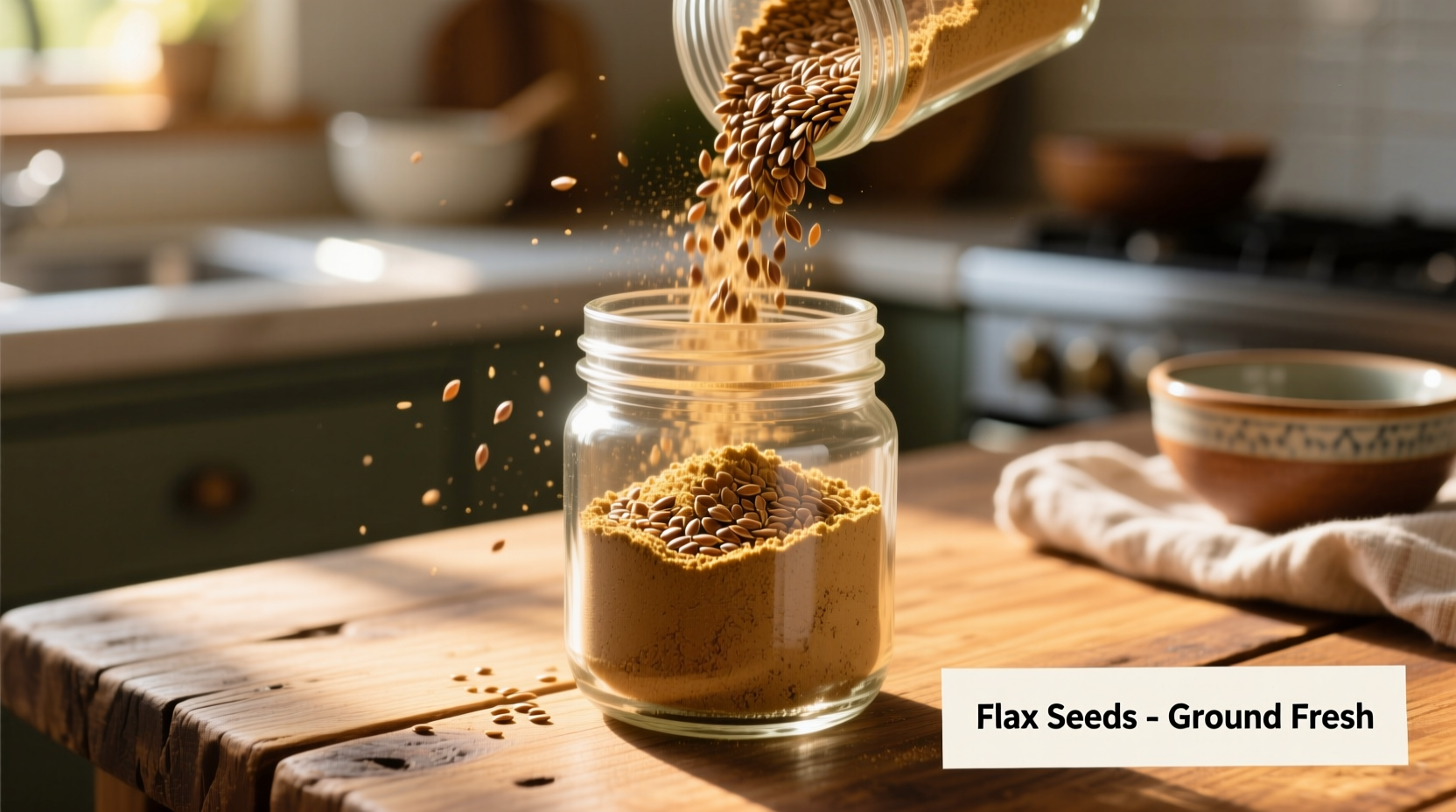These unassuming brown or golden seeds have been cultivated for over 8,000 years, but modern science is just beginning to uncover their full potential. As a functional food powerhouse, flax seeds offer measurable health improvements when incorporated properly into your daily routine. Let's explore exactly what makes flax seeds good for you and how to use them effectively.
Core Health Benefits: What Science Says
Flax seeds shine in several key health areas, with research supporting their effectiveness for specific conditions. Unlike many "superfood" claims, flax seed benefits are well-documented through clinical studies.
Heart Health Champion
Multiple studies confirm flax seeds' cardiovascular benefits. Research published in the American Journal of Clinical Nutrition found that consuming 30 grams of flax seeds daily reduced LDL cholesterol by 15% and total cholesterol by 10% in just 3 months. The combination of alpha-linolenic acid (ALA), fiber, and lignans works synergistically to improve multiple heart disease markers.
| Heart Health Marker | Improvement with Flax Seed | Study Duration |
|---|---|---|
| LDL Cholesterol | 10-15% reduction | 12 weeks |
| Triglycerides | 7-10% reduction | 12 weeks |
| Blood Pressure | 2-5 mmHg reduction | 6 months |
Data sourced from National Institutes of Health clinical trials tracking flax seed consumption in diverse populations.
Digestive System Support
The dual fiber profile makes flax seeds exceptional for digestive health. With both soluble and insoluble fiber, they:
- Improve bowel regularity (particularly helpful for constipation)
- Feed beneficial gut bacteria through prebiotic effects
- Help manage diarrhea through water absorption
- Reduce intestinal inflammation
A clinical trial with 50 participants published in Nutrition Research showed that 25 grams of ground flaxseed daily significantly improved bowel function in just 2 weeks, with 83% of participants reporting better digestive comfort.
Blood Sugar Regulation
For those managing blood glucose levels, flax seeds offer valuable support. The soluble fiber slows carbohydrate absorption while the lignans improve insulin sensitivity. Research in Diabetes Care demonstrated that type 2 diabetes patients consuming 10 grams of flaxseed daily experienced 19.7% lower HbA1c levels after 3 months compared to the control group.
Practical Usage Guide: Getting Maximum Benefits
Ground vs. Whole: The Critical Difference
This is the most important factor many miss. Whole flax seeds often pass through your digestive system undigested, delivering minimal nutritional benefit. Grinding breaks the hard outer shell, making nutrients bioavailable. Always choose ground flaxseed (flax meal) or grind your own using a coffee grinder.

Daily Dosage Recommendations
Research shows optimal benefits with these amounts:
- General health maintenance: 1-2 tablespoons (10-20g) daily
- Cholesterol management: 2-3 tablespoons (20-30g) daily
- Digestive support: 2 tablespoons (20g) daily
Start with smaller amounts and gradually increase to allow your digestive system to adjust.
Storage Methods to Prevent Rancidity
Flax seeds' high fat content makes them prone to oxidation. Follow these storage guidelines:
- Whole seeds: Store in airtight container at room temperature for up to 1 year
- Ground flax: Refrigerate in opaque container for 30-60 days or freeze for 6+ months
- Never buy pre-ground flax in bulk bins - it's likely rancid before purchase
Who Should Exercise Caution
While beneficial for most people, certain individuals should consult healthcare providers before adding flax seeds to their diet:
- Those on blood thinners: High vitamin K content may interact with medications like warfarin
- Individuals with estrogen-sensitive conditions: Lignans have mild phytoestrogen effects
- People with digestive disorders: High fiber content may exacerbate symptoms during flare-ups
- Those with swallowing difficulties: Must consume with adequate fluids
Always introduce flax seeds gradually and drink plenty of water to prevent digestive discomfort.
Simple Ways to Incorporate Flax Seeds Daily
You don't need complicated recipes to enjoy flax seed benefits. Try these practical methods:
- Mix 1-2 tablespoons into morning smoothies (add after blending to preserve nutrients)
- Sprinkle over yogurt or oatmeal just before serving
- Replace 1 egg with 1 tablespoon ground flax + 3 tablespoons water in baking
- Add to salad dressings for thickness and nutrition
- Use as breadcrumb substitute for coating proteins
For maximum freshness, grind whole seeds in small batches using a dedicated coffee grinder. Store ground flax in the freezer in portion-sized containers for easy daily use.
Evolving Research Timeline
Scientific understanding of flax seeds has evolved significantly over the past three decades:
- 1990s: Initial research focused on flax as animal feed with limited human health studies
- Early 2000s: Discovery of exceptionally high lignan content sparked interest in cancer prevention
- Mid 2000s: Clinical trials confirmed cholesterol-lowering effects, leading to FDA health claim approval
- 2010s: Research expanded to include blood sugar regulation and digestive health benefits
- 2020s: Current studies examining flax's role in gut microbiome diversity and inflammation reduction
According to the National Center for Biotechnology Information, over 1,200 clinical studies on flax seeds have been published since 2010, reflecting growing scientific interest in this functional food.
Final Recommendations for Maximum Benefit
To get the most from flax seeds in your diet:
- Always use ground flax seeds rather than whole
- Store ground flax in the freezer to prevent rancidity
- Consume 1-2 tablespoons daily for general health
- Pair with vitamin C-rich foods to enhance nutrient absorption
- Drink plenty of water to support fiber's digestive benefits
Unlike many trendy superfoods, flax seeds deliver measurable, science-backed health improvements when used correctly. By incorporating these simple practices into your routine, you'll harness their full potential for heart health, digestive wellness, and metabolic support.











 浙公网安备
33010002000092号
浙公网安备
33010002000092号 浙B2-20120091-4
浙B2-20120091-4